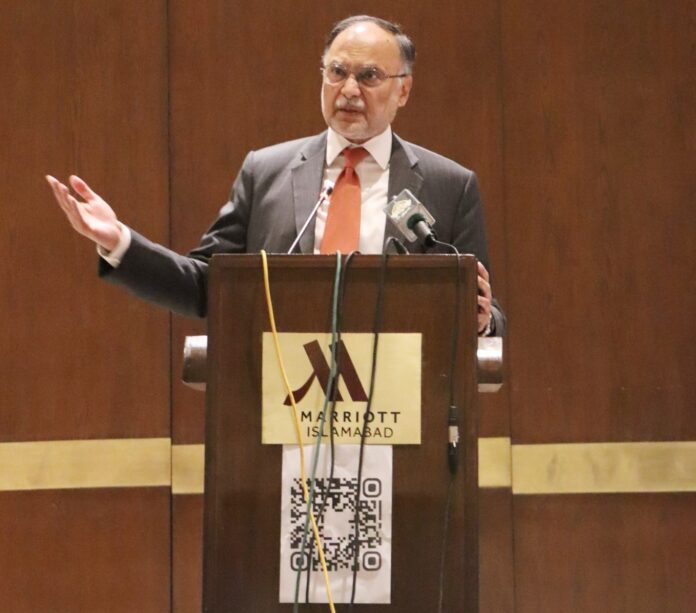ISLAMABAD, Apr 11 (APP): Minister for Planning, Development and Special Initiatives Professor Ahsan Iqbal on Friday stressed that national development required a supportive ecosystem, akin to those in developed countries, built upon four foundational principles including peace and harmony, at least a decade of political stability, policy consistency and continuous reforms.
“The seed of development needs a conducive ecosystem, based on these four pillars, which are evident in every success story,” he stated while addressing a seminar titled ‘Navigating Public Policy.’
He lamented the country’s political instability in the past, describing it as a decades-long “musical chairs” scenario, where governments changed every two to three years, resulting in the abandonment of carefully crafted policy frameworks and severely hindering national development and prosperity.
While acknowledging that Pakistan has made significant strides since its inception in 1947, the minister admitted that the pace of development fell short compared to global standards. “We have to cut a sorry figure when compared with developed nations,” he said.
Recalling economic comparisons, Ahsan Iqbal said that in 1960, Pakistan’s exports were approximately $200 million, while South Korea, Malaysia, and Thailand had exports around $205 million. Today, Pakistan’s exports stand at around $32 billion, in contrast to South Korea’s $600 billion, Malaysia’s $300 billion and Thailand’s $200 billion.
Highlighting another comparison, he said that in 1980, Pakistan’s per capita income was $300 compared to China’s $200. However, today Pakistan’s per capita income was around $1,600, while China’s has surged to approximately $16,000.
He stressed that the Pakistani nation possessed all the essential characteristics to transform into a developed country, but reiterated that peace, political stability, policy continuity and ongoing reforms were crucial to keeping pace with rapidly evolving global technologies.
Recalling the PML-N’s 2013 tenure, Ahsan Iqbal said Pakistan at that time was grappling with prolonged electricity load-shedding and heightened terrorist activity. “With complete determination, within four years, we eliminated load-shedding, eradicated terrorism, and cleansed the country of terrorists,” he said.
He further highlighted the significance of the China-Pakistan Economic Corridor (CPEC), which brought in $25 billion in investment. International rating agencies had predicted that, if Pakistan maintained its development trajectory, it could be among the world’s top 20 economies by 2030. “This was a validation of our Vision 2010 and Vision 2025,” he remarked.
Unfortunately, the minister said, a regime change in 2018 disrupted this progress, as all PML-N-initiated development policies were discarded, and a government with a “fake mandate” was installed. This shift, he argued, erased the positive international sentiment that Pakistan had worked hard to build.
Now that the PML-N is back in power, he asserted, “We must become a sharper economy – more agile, smarter and faster.”
To achieve this, the government has introduced a “5Es Framework” under the URAAN PAKISTAN initiative, aimed at positioning Pakistan as a leading economy by boosting exports and developing a robust chain of value-added products.
Development requires supportive ecosystem to thrive: Ahsan Iqbal
- Advertisement -
- Advertisement -
- Advertisement -

